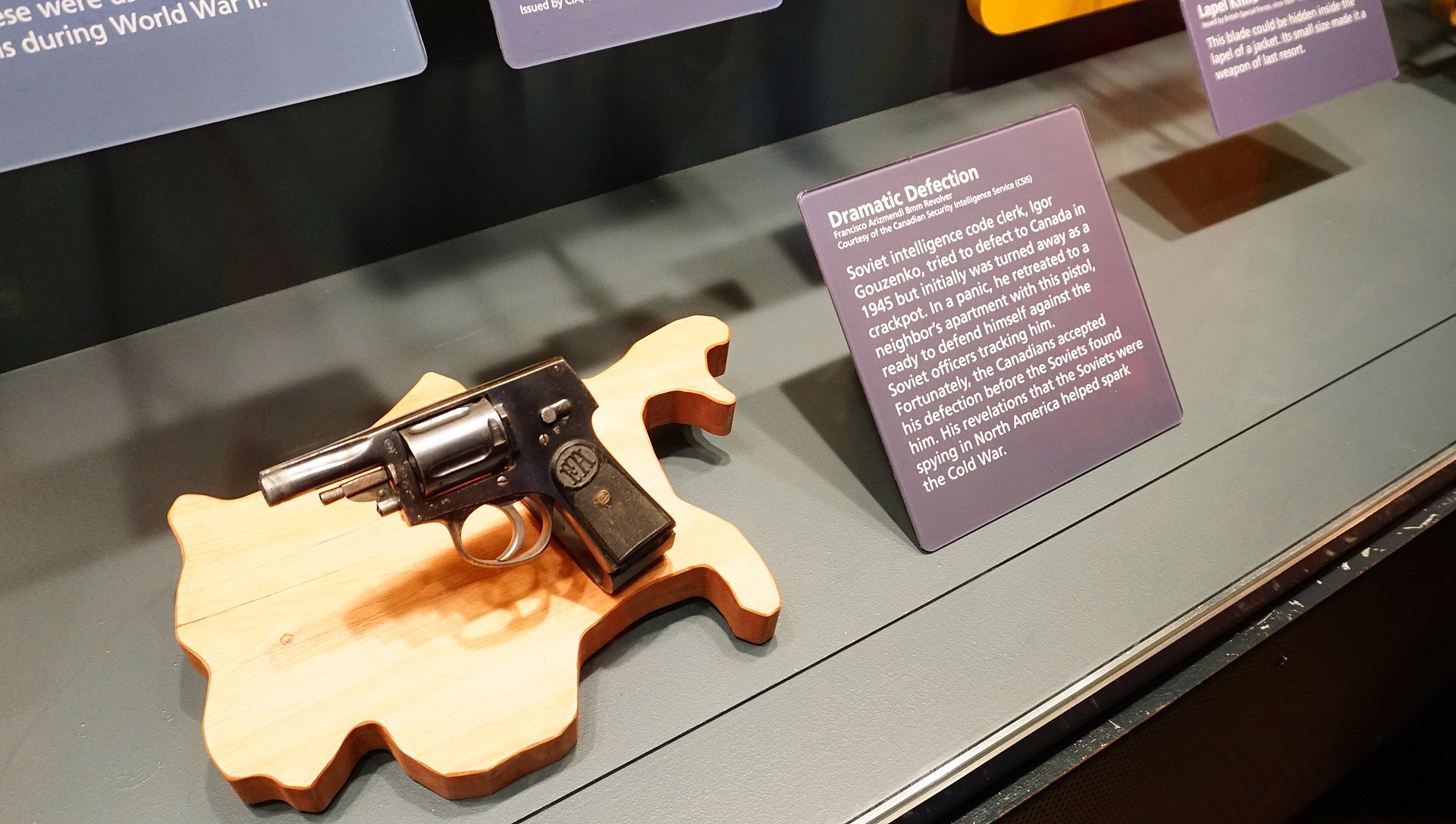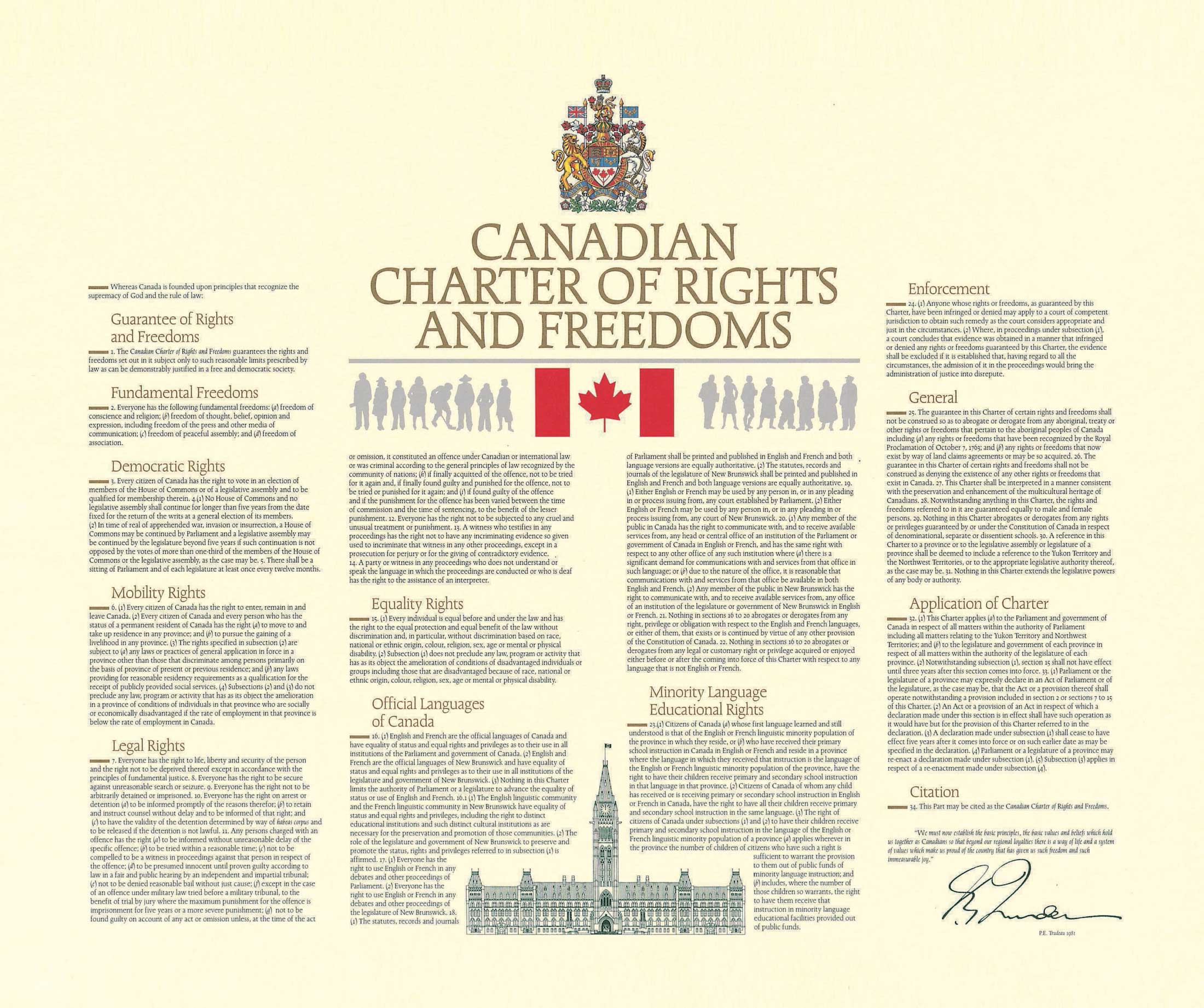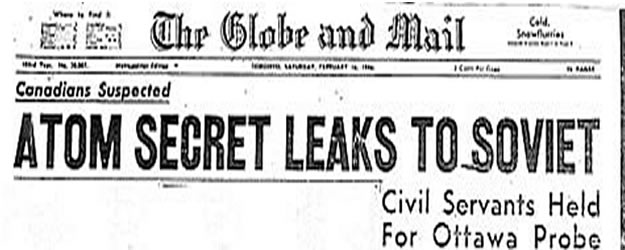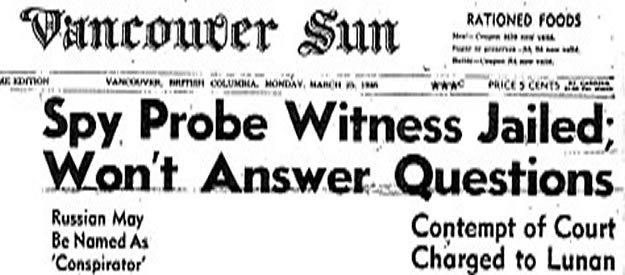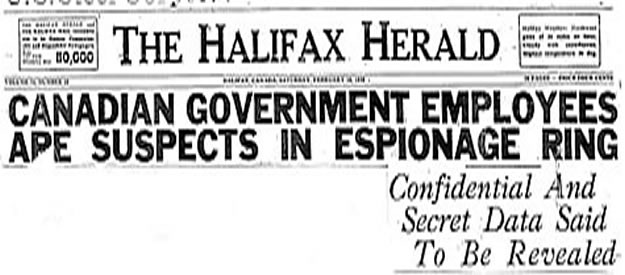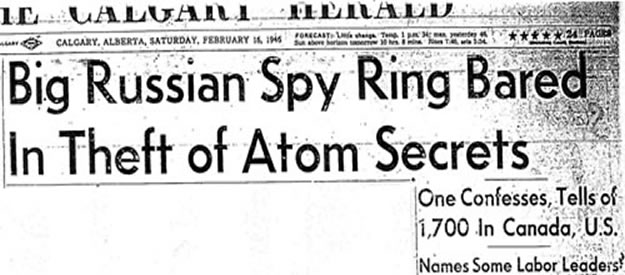The Cold War began with the defection of Igor Gouzenko in 1945 and revelations surrounding a Soviet spy ring operating in Canada.
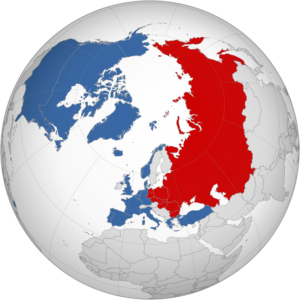
The Gouzeko Affair symbolized the crumbling of the wartime alliance between East and West, and the emergence of a new era of global conflict. In Canada, the defection had far more immediate consequences. The federal government invoked wartime powers to detain, interrogate, and prosecute several suspected communist spies. Habeas corpus was suspended, and people were arrested and questioned by the police for weeks. Denied access to legal counsel, they were held in tiny cells, kept under suicide watch, and guarded at all times. Even those who were acquitted at trial lost their reputations due to the stigma of being associated with treason. The proceedings of the espionage commission that was established to investigate the suspects rank alongside the October Crisis of 1970 as the most extensive abuse of individual rights in Canadian history during peacetime. The controversy surrounding the Gouzenko Affair ultimately led to the formation of several civil liberties organizations.
In addition to a brief history of the Gouzenko Affair, there is a Chronology, a page on Sentences (results of the spy trials), and a list of Key Figures involved in the scandal. There is also a rich collection of archival documents and a list of further reading.

